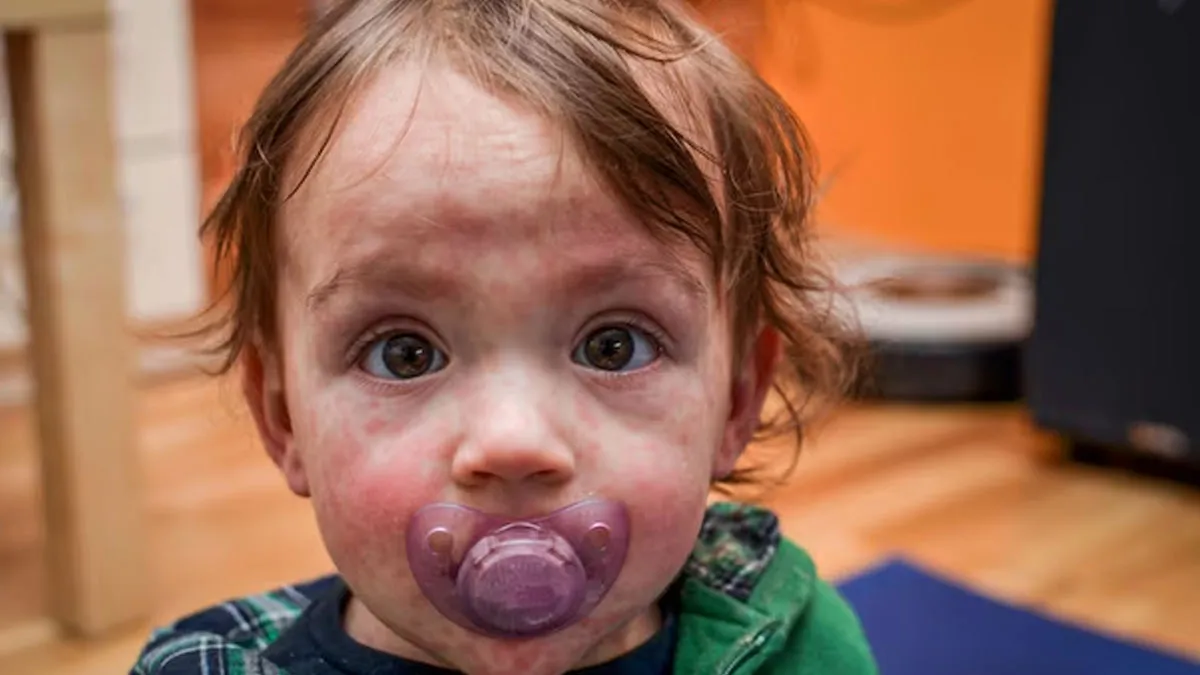
Vaccination is our best defense against deadly diseases like measles, but sometimes, even vaccinated individuals can still get infected. Recently, a one-year-old girl from Michigan contracted measles despite having received her first dose of the MMR (measles, mumps, rubella) vaccine just a day before traveling through an airport. This case has raised questions about how this can happen and what it means for vaccination efforts. Understanding the timing and effectiveness of vaccines can help clear up common misconceptions and emphasize the importance of timely immunization.
Table of Content:-
The Details of the Case![measles in child 3 (72)]()
The girl’s situation is unusual but not entirely unheard of. According to health officials, she had received her first dose of the MMR vaccine just a day before she traveled. The problem is, the vaccine needs time, usually about two weeks, to build full immunity. Because she was exposed to the virus so soon after vaccination, her immune system hadn’t yet developed enough protection, leaving her vulnerable to infection.
Dr Nike Shoyinka, the medical health officer in Ingham County, explained that the vaccine's protective effects don’t kick in immediately. It takes about 14 days for the body to produce enough antibodies to fight off measles effectively. In this case, the girl was exposed to the virus during her travel, and her immune system was not yet prepared to defend against it.
ALSO READ: World’s First Sperm Race! Over 1,000 Live Audience Spectators and Everything You Need To Know
How Vaccines Work and Why Timing Matters

The measles vaccine is highly effective, with two doses offering about 97% protection. However, a single dose, especially if given shortly before exposure, may not provide immediate immunity. The vaccine works by stimulating the immune system to produce antibodies, but this process takes time.
This case highlights an important point, vaccination is most effective when administered well before potential exposure to the virus. It’s recommended to get vaccinated at least two weeks before traveling or being in contact with others who might carry the disease.
The Broader Context![measles harms 1 - 2025-04-16T162613.952]()
This incident is part of a larger trend of rising measles cases across the United States in 2025. According to health authorities, there have been over 700 reported cases so far this year, with a significant number in Texas. Many of these cases are linked to gaps in vaccination coverage, misinformation, and vaccine hesitancy.
Measles is highly contagious and can lead to serious complications, especially in young children, pregnant women, and immunocompromised individuals. The best way to prevent outbreaks is through high vaccination rates in the community, ensuring herd immunity.
Conclusion
This case underscores the importance of timing in vaccination. While the vaccine is incredibly effective, it’s crucial to get it well in advance of potential exposure. Health officials recommend that parents and caregivers ensure children are vaccinated on schedule and understand that immunity takes time to develop. If traveling or exposed to infectious diseases, additional precautions may be necessary.
Also watch this video
Read Next
World’s First Sperm Race! Over 1,000 Live Audience Spectators and Everything You Need To Know
How we keep this article up to date:
We work with experts and keep a close eye on the latest in health and wellness. Whenever there is a new research or helpful information, we update our articles with accurate and useful advice.
Current Version
-1744800998132.jpg)
